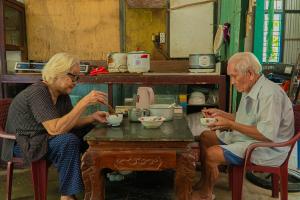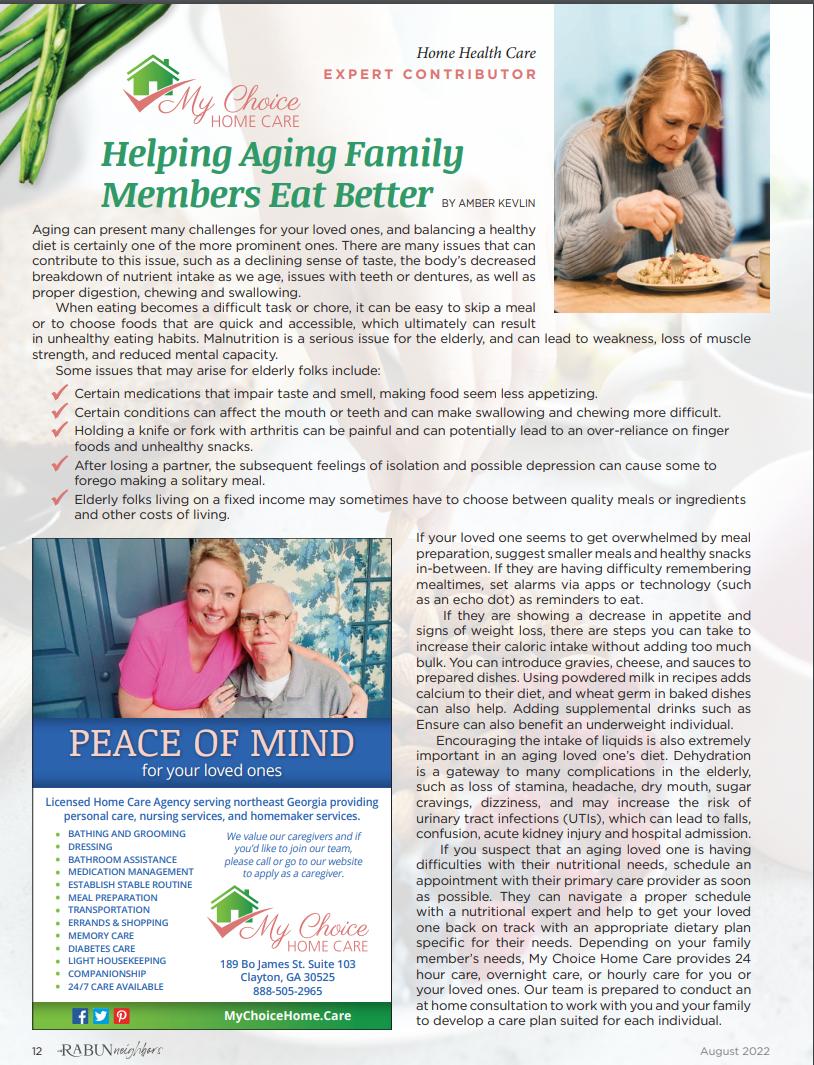Aging can present many challenges, and balancing a healthy diet is certainly one of the more prominent eating challenges. There are many issues that can contribute to this issue, such as a declining sense of taste, the body’s decreased breakdown of nutrient intake as we age, issues with teeth or dentures, as well as proper digestion, chewing and swallowing.
When eating becomes a difficult task or chore, it can be easy to skip a meal or to choose foods that are quick and accessible, which ultimately can result in unhealthy eating habits. Malnutrition is a serious issue for the elderly, and can lead to weakness, loss of muscle strength, and adverse effects on mental health.
Some issues that may arise for elderly folks may include:
- Certain medications that impair taste and smell, making food seem less appetizing.

- Certain conditions can affect the mouth or teeth, and can make swallowing and chewing more difficult.
- Holding a knife or fork with arthritis can be painful, and can potentially lead to an over-reliance on finger foods and unhealthy snacks.
- After losing a partner, the subsequent feelings of isolation and possible depression can cause some to forego making a solitary meal.
- Elderly folks living on a fixed income may sometimes have to choose between quality meals or ingredients and other costs of living.
If your loved one seems to get overwhelmed by meal preparation, suggest smaller meals and healthy snacks in-between. If they are having difficulty remembering meal times, set alarms via apps or technology (such as an echo dot) as reminders to eat.
If they are showing a decrease in appetite and signs of weight loss, there are steps you can take to increase their caloric intake without adding too much bulk. You can introduce gravies, cheese, and sauces to prepared dishes. Using powdered milk in recipes adds calcium to their diet, and wheat germ in baked dishes can also help. Adding supplemental drinks such as Ensure can also benefit an underweight individual.
Encouraging the intake of liquids is also extremely important in an aging loved one’s diet. Senior dehydration is a gateway to many complications in the elderly, such as loss of stamina, headache, dry mouth, sugar cravings, dizziness, and may increase the risk of a urinary tract infections (UTIs), which can lead to falls, confusion, acute kidney injury and hospital admission.
If you suspect that an aging loved one is having eating challenges, schedule an appointment with their primary care provider as soon as possible. They can navigate a proper schedule with a nutritional expert, and help to get your loved one back on track with an appropriate dietary plan specific for their needs. Contact us through our website here MyChoiceHome.Care
________________________________________________________________________________________
Our article is published in RABUN Neighbors magazine


Recent Comments